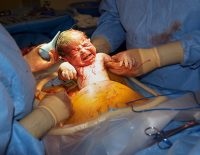Conjunctivitis, skin allergy being reported from relief camps: Bhardwaj

Delhi health minister Saurabh Bharadwaj on Monday said that the cases of conjunctivitis, skin allergy and fever are mostly being reported from the flood relief camps. He said that east Delhi and northeast Delhi have largely been impacted due to the floods and have been shifted to these camps.
“After flooding, there is a fear of cases of vector-borne disease like dengue, chikungunya and malaria rising. But that trend is not being seen at the moment. Cases of conjunctivitis and skin allergy are mostly being reported from relief camps,” said Mr Bhardwaj while visiting the hospitals to review the preparations against the vector borne disease that rises during the monsoon and flood.
The Health Minister along with the Delhi Mayor Shelly Oberoi inspected Swami Dayanand Hospital and Lal Bhadur Shastri Hospital. Speaking on the occasion, Mr Bhardwaj said all Delhi government departments have been instructed to constantly monitor the situation in the aftermath of flooding in the national capital”. He added that the medical camps have been set up and free medical treatment is being given in the camp.
Delhi government has set up a Disaster Management ward for the flood-affected people at both hospitals. The Health Minister directed the officials to admit patients with symptoms of dengue, chikungunya, and malaria from the relief camps to the Disaster Management Ward wherein their conditions can be monitored. He also reviewed the stock of medicines for vector-borne diseases and urged the hospital administration to remain vigilant.
“Two doctors along with para-medical staff are presently in all the camps. Around 200-250 people are coming to the camps for the checkup. Mostly, doctors are receiving cases of conjunctivitis, while some cases of fungal infections have also been detected”, said Mr Bhardwaj.
In an attempt to prevent vector-borne disease, the health department will conduct campaigns through the public healthcare system. The Domestic Breeding Checkers (DBCs) will inspect police stations and government buildings to ensure compliance with mosquito control measures and the preventive measures will be aired at metro stations and inside the trains.








Comments